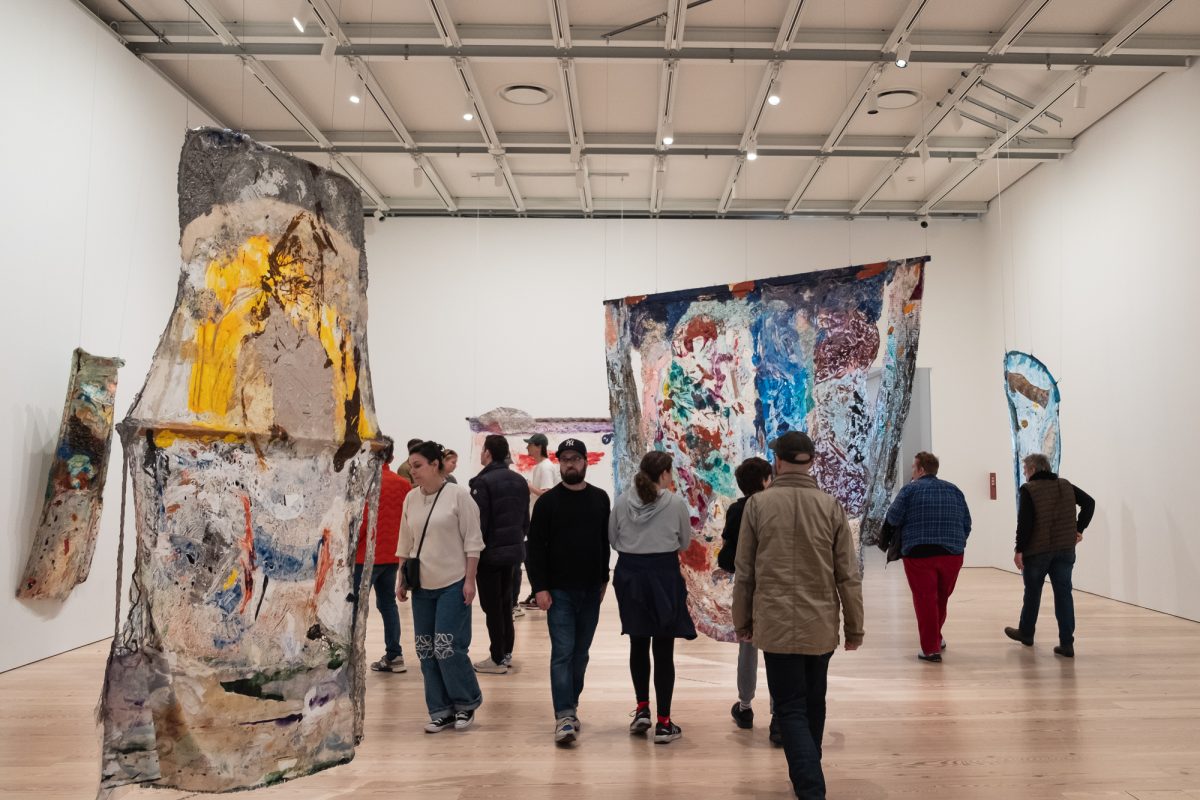Performance becomes therapy
The three plays that make up “Sex as Performance” confront tough topics like sexual assault.
February 12, 2015
The sensitive topics of sex and assault were openly discussed through a collection of three one-act plays in “Sex as Performance,” showcasing the work of Drama Therapy master candidates. Curated by drama therapy professional Jessica Shotwell with showings from Feb. 5 to 8 at Black Box Theater, the event encouraged dialogue of the various implications of such themes.
The three plays — “Transference”, “Blurred Lines” and “Tips to Avoid Rape for the Average American Girl” — were inspired by the directors’ and playwrights’ own experiences and observations regarding the subjects of rape and sex.
“How sex is performed was the question that was offered to the drama therapist students,” Shotwell said. “They then went ahead and with that prompt, came up with these proposals from which I chose.”
Shotwell said the event was a form of therapeutic theater, as there is therapy in the performance for the directors, playwrights and the audience.
“I would say drama therapy is a respectable clinical therapy approach that uses embodiment story and anything we can get our hands on to get our client to make a personal change,” Shotwell said. “There is no one entity that it serves, and it sets out to be service in all respects.”
The play “Transference” explored a young man’s feelings as he grew to love his deceased partner’s therapist. Director Jon DeAngelis based the play on his personal experience and said he believed channeling his feelings into the story had a therapeutic effect.
In the next play, Kat Lee and Cameron Wade’s “Blurred Lines” replaced spoken dialogue with a series of artistic expressions, exaggerated dance moves and intriguing music to convey the plot. The two directors chose an untraditional method of presenting the act because they felt the experience was difficult to verbalize. A sub-act of their production, ”Street Harassment as Performance” was a glimpse of street harassment. The play also explored the cyclical nature of the perpetrator and victim relationship.
The last play, “Tips to Avoid Rape for the Average American Girl,” portrayed director Darci Burch’s wish to open up dialogue of the layered perceptions of rape in American society. The play combined a humorous approach with a discussion of how one could avoid a potential assault. Burch hoped that through the play, the audience would form its own opinion on the subject of rape.
“My intentions were to make you wonder about my intentions and have answers for them,” Burch said.
CAS senior Ruiqi Xie enjoyed the event, and said it was important that the social topics were acknowledged and discussed.
“I think the event had a very compact and delicate climax,” Xie said. “I liked the way these plays discuss the various ironies in the ideas of rape and should be shown at all campuses in the U.S.”
A version of this article appeared in the Thursday, Feb. 12 print edition. Email Dhriti Tandon at [email protected].












































































































































